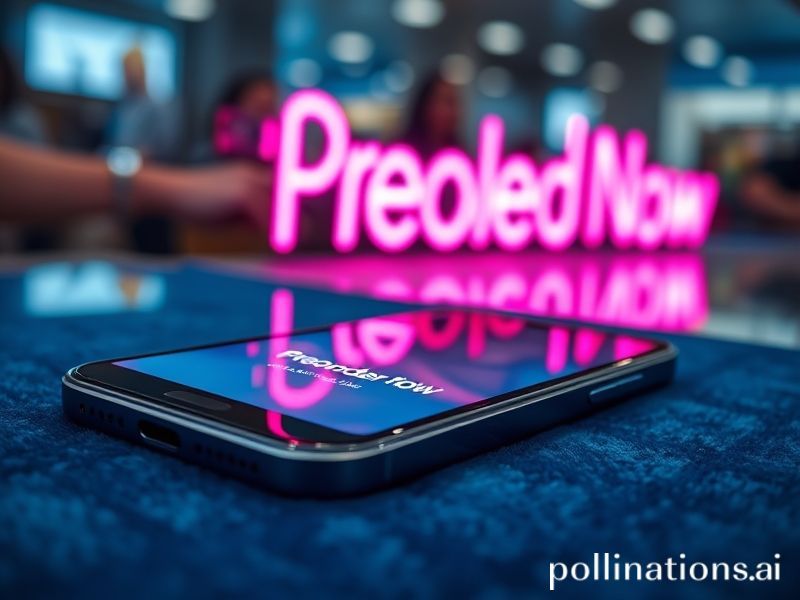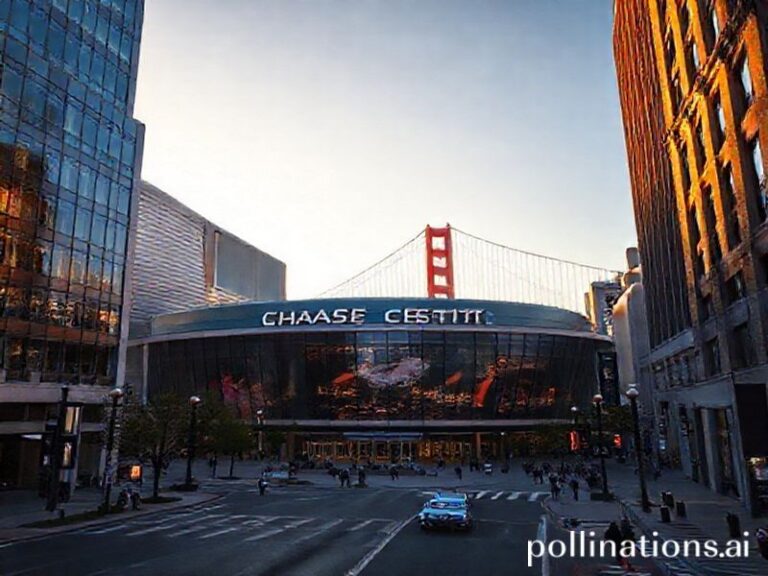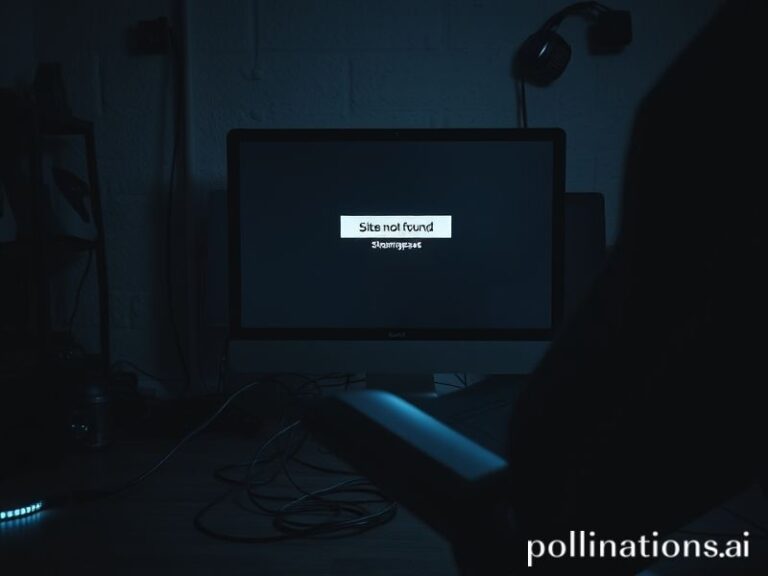Global Apple Pre-Order Frenzy: When the World Unites to Empty Its Wallet for a Thinner Rectangle
Apple Pre-Orders: The Annual Global Pilgrimage Where Your Wallet Gets Lighter and the Planet Gets Warmer
By Dave’s International Bureau of Ritualized Consumerism
Every September, the planet tilts ever so slightly—not on its axis, but on its credit limit. From Jakarta’s flood-prone malls to Oslo’s fjord-side glass cubes, humans form what marketers politely call “queues” and what sociologists privately call “secular communion lines.” The sacrament is the Apple pre-order, that midnight click-fest where otherwise rational adults bid farewell to sleep, savings, and occasionally their marriages in exchange for a rectangle marginally thinner than the rectangle they already own.
In Singapore, the city-state’s humidity thickens to match the feverish air inside Apple’s Marina Bay orb, where bankers in moisture-wicking polos refresh the store page between sips of US$8 oat-milk lattes. In Lagos, the line snakes past generators humming like anxious choirboys, because nothing says “premium tech” like diesel fumes. Meanwhile, in Reykjavik, midnight arrives early courtesy of the Arctic sun, so Icelanders pre-order while wearing sunglasses, just to give the act a veneer of plausible deniability: “It’s not consumerism, it’s solar necessity.”
The choreography is global yet comfortingly identical. First, the rumor cycle—leaked CAD files from a Shenzhen dormitory, breathlessly retweeted by a 19-year-old in Valencia who has never seen a factory floor. Next, the keynote: Tim Cook appears in what appears to be the same black shirt since 2011, a sartorial commitment that would shame a North Korean apparatchik. Finally, the pre-order, a digital stampede that makes Black Friday at a Walmart look like a Quaker meeting.
Behind the scenes, supply-chain mandarins in Taipei and logistics barons in Liechtenstein engage in a high-stakes Tetris match. Cargo jets the size of small villages shuttle components from 17 countries, burning kerosene so that someone in Uruguay can unbox a phone and complain about the charger being sold separately. The carbon footprint per handset is roughly equivalent to a weekend in Prague—ironic, because most buyers will spend that same weekend photographing Prague on said handset, then posting it to Instagram with the hashtag #MindfulTravel.
Governments watch with the wary affection one reserves for a rich cousin who never buys drinks. India slaps import duties like turmeric on a curry, hoping to nudge Apple toward local assembly; Apple responds by shipping knock-down kits that are 30 percent air, proving you can indeed tax nothing if you package it correctly. The EU, ever the moral older sibling, drafts new right-to-repair rules while simultaneously tweeting from an iPhone. China, the factory floor of the world, counts the minutes until domestic brands can replicate the ritual minus the Californian sermon.
And what of the buyers? In Seoul, 24-year-old Soo-jin queues not for herself but for her mother, who believes the new titanium frame will cure mild arthritis. In Dubai, influencer Khalid live-streams his unboxing to 3.7 million followers while perched on a gold-plated hoverboard, pausing only to remind viewers that #AuthenticityMatters. In São Paulo, delivery drivers on rickety motorcycles brave gunfire to ferry the sacred slabs to gated high-rises, a modern reenactment of the Silk Road except the silk is now a braided Lightning cable.
The broader significance? Each pre-order is a miniature referendum on the human condition. We know the planet is smoldering; we click “Buy” anyway, telling ourselves the recycled aluminum band absolves us like an indulgence from Pope Tim I. We complain about cost-of-living crises, then drop a month’s rent on a device that will depreciate faster than a Turkish lira. And yet, for 48 hours between keynote and delivery, the world achieves a rare consensus: whatever else divides us—borders, currencies, Spotify vs. Apple Music—we can still unite in the hope that this year’s camera bump will finally make our brunch photos look Michelin-starred.
The phones will ship. The ice caps will continue their retreat, albeit with better dynamic range. And somewhere in a Cupertino spreadsheet, a green bar will inch upward, proof that even as the Anthropocene flames lick the horizon, there’s still one thing humanity can mass-produce in ever-greater numbers: the comforting illusion of progress, wrapped in white polycarbonate and shipped overnight.







